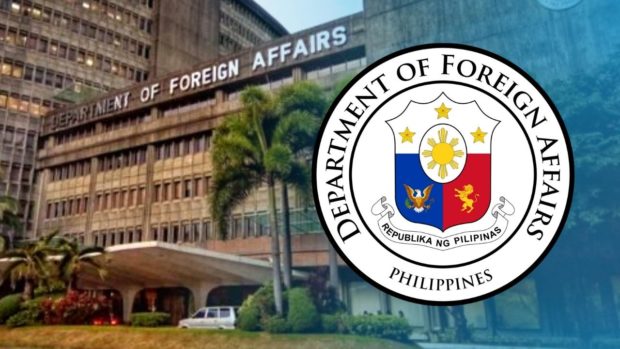
Department of Foreign Affairs (INQUIRER FILE PHOTO)
MANILA, Philippines — The Philippines has reaffirmed its “unwavering commitment” to uphold and strengthen democracy by endorsing the Declaration of the Summit for Democracy, but “disassociated” itself from any reference to the International Criminal Court (ICC).
The Department of Foreign Affairs (DFA) on Thursday said the Philippines joined the United States and several other nations in endorsing the declaration, with President Ferdinand “Bongbong” Marcos Jr. participating through a recorded video message.
This, according to the DFA, “is a testament to our unwavering commitment to upholding our democratic values and principles and to strengthening our democratic institutions for the benefit of the Filipino people.”
“The Philippines, however, disassociates itself from the Declaration’s reference to the ICC. While the current language provides a qualifier that the ICC’s role may be acknowledged provided it abides by the principle of complementarity, the Philippines’ earlier decision to withdraw from the ICC was precisely because the Court failed the test of complementarity,” the DFA said in a statement.
The Declaration of the Summit for Democracy released by the United States government “acknowledge[s] the important role played by the ICC as a permanent and impartial tribunal complementary to national jurisdictions in advancing accountability for the most serious crimes under international law.”
The Philippines was a state party to the Rome Statute – the multilateral treaty creating the ICC – until then President Rodrigo Duterte declared in 2018 the country’s withdrawal from the statute following the international tribunal’s announcement of a preliminary investigation into his administration’s bloody war on drugs.
“The Philippine government does not recognize the ICC’s jurisdiction and affirms that the Philippines has the jurisdiction to investigate and prosecute crimes, including those allegedly committed in the context of the country’s anti-illegal drugs campaign,” DFA said.
It echoed the claim of the government that the rule of law and the value of accountability are “fully functioning” through the country’s criminal justice system.
DFA also cited Administrative Order No. 35, signed by then President Benigno Aquino III, which creates an inter-agency panel on extralegal killings, enforced disappearances, torture, and other grave violations of the right of life, liberty, and security of the people.
“The Philippines upholds its commitment to fight impunity for atrocity crimes, notwithstanding the country’s withdrawal from the Rome Statute, especially since the Philippines has a national legislation punishing atrocity crimes,” the DFA said.
The DFA renewed its call for human rights-related dialogues not to be “politicized and targeted against specific countries and instead, be constructive, inclusive, and directed at delivering meaningful, long-lasting solutions.”
Duterte and Sen. Ronald dela Rosa, chief enforcer of the drug war when he was the national police chief, are among those accused of crimes against humanity before the ICC for the government’s violent war on drugs.
The argument questioning the jurisdiction of the ICC had repeatedly been raised by government officials – both in the Duterte and Marcos administration – but according to Article 127 of the Rome Statute, a state party shall not be discharged from its obligations to the statute prior to its withdrawal.
The Supreme Court had also ruled in the same position, reiterating that “withdrawing from the Rome Statute does not discharge a state party from obligations it has incurred as a member.”